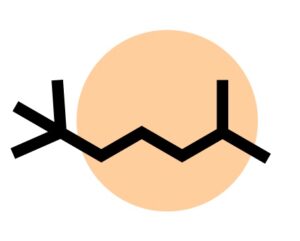In the complex web of our nervous system, neurotransmitters act as chemical messengers that transmit signals across synapses, the gaps between neurons. Among the many neurotransmitters, acetylcholine stands out due to its critical role in both the central and peripheral nervous systems. This versatile neurotransmitter is essential for various physiological functions, including muscle movement, memory, and learning. Let’s delve deeper into the world of acetylcholine and explore its significance in our daily lives.
What is Acetylcholine?
Acetylcholine (ACh) is a neurotransmitter synthesized from choline and acetyl-CoA in the nerve terminals. It was the first neurotransmitter to be discovered, earning it a pivotal place in neuroscience. ACh is found in both the central nervous system (CNS) and the peripheral nervous system (PNS), where it mediates numerous functions through its interaction with specific receptors.
The Role of Acetylcholine in the Central Nervous System
In the CNS, acetylcholine is primarily involved in modulating synaptic plasticity, which is crucial for learning and memory. The cholinergic system, composed of neurons that use ACh as a neurotransmitter, is densely packed in regions such as the basal forebrain and the hippocampus. These areas are critical for cognitive processes.
- Memory and Learning: Acetylcholine plays a vital role in the formation of new memories and the retrieval of existing ones. It facilitates communication between neurons in the hippocampus, a region associated with long-term memory.
- Attention and Arousal: ACh is essential for maintaining attention and alertness. It helps regulate the sleep-wake cycle and ensures that the brain remains responsive to external stimuli.
The Role of Acetylcholine in the Peripheral Nervous System
In the PNS, acetylcholine is the primary neurotransmitter involved in muscle activation. It is released at neuromuscular junctions, where it binds to receptors on muscle cells, leading to muscle contraction.
- Muscle Movement: When an action potential reaches the end of a motor neuron, acetylcholine is released into the synapse. It binds to nicotinic receptors on the muscle fiber, causing depolarization and triggering muscle contraction.
- Autonomic Functions: ACh is also crucial in the autonomic nervous system, where it regulates functions such as heart rate, digestion, and respiratory rate. It acts on both nicotinic and muscarinic receptors to mediate these involuntary processes.
Acetylcholine Receptors: Nicotinic and Muscarinic
Acetylcholine exerts its effects through two types of receptors:
- Nicotinic Receptors: These are ionotropic receptors that respond to ACh by opening ion channels, leading to an influx of ions that depolarize the neuron or muscle cell. Nicotinic receptors are found at neuromuscular junctions and in the CNS.
- Muscarinic Receptors: These are metabotropic receptors that act through G-proteins to produce longer-lasting effects. Muscarinic receptors are widely distributed in the CNS and the autonomic nervous system.
Disorders Associated with Acetylcholine Dysfunction
Imbalances in acetylcholine levels or receptor function can lead to various neurological and muscular disorders:
- Alzheimer’s Disease: This neurodegenerative disorder is associated with a significant loss of cholinergic neurons in the basal forebrain. Reduced acetylcholine levels contribute to the cognitive decline observed in Alzheimer’s patients.
- Myasthenia Gravis: This autoimmune disorder affects neuromuscular transmission. Antibodies attack nicotinic receptors at the neuromuscular junction, leading to muscle weakness and fatigue.
- Parkinson’s Disease: Although primarily associated with dopamine, acetylcholine also plays a role in Parkinson’s disease. An imbalance between dopamine and acetylcholine in the basal ganglia contributes to motor symptoms.
Enhancing Acetylcholine Function
Given its crucial role in cognition and muscle function, enhancing acetylcholine activity can be beneficial in certain conditions:
- Cholinesterase Inhibitors: These drugs prevent the breakdown of acetylcholine, increasing its availability. They are commonly used in the treatment of Alzheimer’s disease to improve cognitive function.
- Choline Supplements: Since choline is a precursor to acetylcholine, supplements can help boost acetylcholine levels, potentially enhancing memory and cognitive performance.
Conclusion
Acetylcholine is a fundamental neurotransmitter that plays a key role in both the central and peripheral nervous systems. From enabling muscle movement to facilitating memory and learning, its functions are diverse and essential for our daily activities. Understanding acetylcholine’s mechanisms and its impact on health can lead to better treatments for neurological and muscular disorders, highlighting the importance of this remarkable neurotransmitter in maintaining our well-being.
